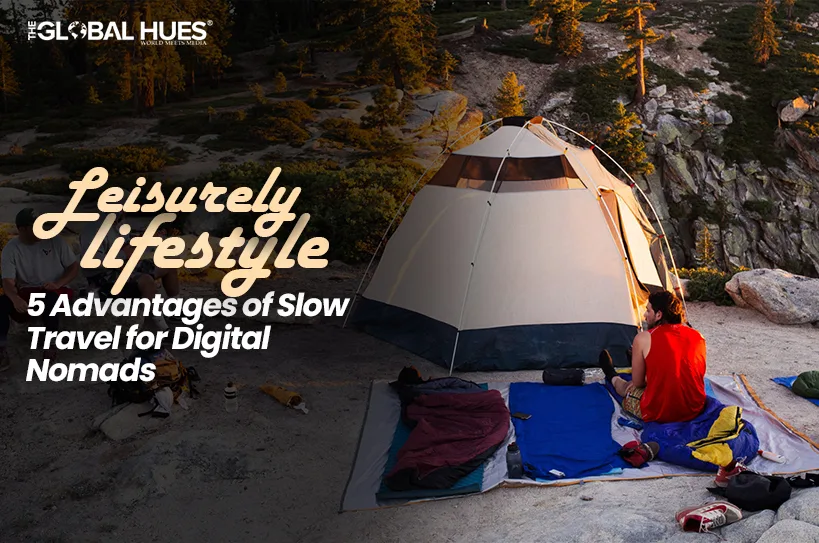Slow travel has become a popular choice among digital nomads who seek deeper connections with the places they visit. By emphasizing quality over quantity, slow travel allows you to fully immerse yourself in a new environment. Whether your digital nomading has you teaching students in Mexico or writing for an expert tax accountant in Australia, the choice to travel slow offers the unique benefits outlined below:
1. Deeper Cultural Immersion
Unlike traditional travel, which often involves hopping from one tourist attraction to another, slow travel encourages digital nomads to engage more meaningfully with the local culture. They can learn the language, participate in community events, and build relationships with locals.
This level of immersion enriches the travel experience and provides insights that can be valuable in both personal and professional contexts. By understanding the nuances of a different culture, digital nomads can gain a broader perspective that enhances creativity and problem-solving in their work.
2. Improved Work-Life Balance
Balancing work and travel can be challenging for digital nomads, but slow travel offers a solution. By staying in one place for longer periods, nomads can establish a routine that supports both productivity and relaxation.
This balance is crucial for maintaining mental health and preventing burnout, which is a common risk in the digital nomad lifestyle. A stable routine can lead to better work outcomes and a more enjoyable travel experience.
3. Cost-Effectiveness
Contrary to popular belief, slow travel can be more cost-effective than constantly moving from place to place. When digital nomads choose to stay in one location for an extended period, they can often negotiate better rates on accommodations. Many landlords and Airbnb hosts offer discounts for long-term stays, which can significantly reduce housing costs.
Additionally, staying in one place reduces transportation expenses, such as flights or train tickets. Digital nomads can also save money by shopping at local markets and cooking their own meals instead of eating out every day. Over time, these savings add up, allowing nomads to allocate funds to other experiences or investments.
4. Environmental Sustainability
Slow travel is inherently more environmentally sustainable than traditional fast travel. By minimizing the frequency of flights and other forms of long-distance transportation, digital nomads can reduce their carbon footprint and focus more on walking, cycling, and public transportation.
Furthermore, by supporting local businesses and engaging with the community, digital nomads contribute to the local economy in a sustainable way. Embracing slow travel aligns with the growing global awareness of the need to protect the environment and live more sustainably.
5. Enhanced Personal Growth
The slower pace of slow travel provides ample opportunities for personal growth. Digital nomads who adopt this approach often find that they have more time to reflect on their experiences, set personal goals, and develop new skills. Whether it’s learning a new language, practicing mindfulness, or simply taking time to enjoy the present moment, slow travel fosters a mindset of continuous learning and self-improvement.
This personal growth can be transformative, leading to increased self-awareness and a deeper understanding of one’s values and priorities. Moreover, the challenges that come with adapting to a new environment over a longer period can build resilience and adaptability—qualities that are invaluable in both personal and professional life.
Slow travel offers digital nomads a richer, more sustainable way to experience the world. By embracing a slower pace, nomads can immerse themselves in local cultures, achieve a better work-life balance, and save money—all while reducing their environmental impact. Ultimately, the benefits of slow travel extend beyond the journey itself, leading to profound personal and professional growth.
*The information in this article does not necessarily reflect the views of The Global Hues. We make no representation or warranty of any kind, express or implied, regarding the accuracy, adequacy, validity, reliability, availability or completeness of any information in this article.*



